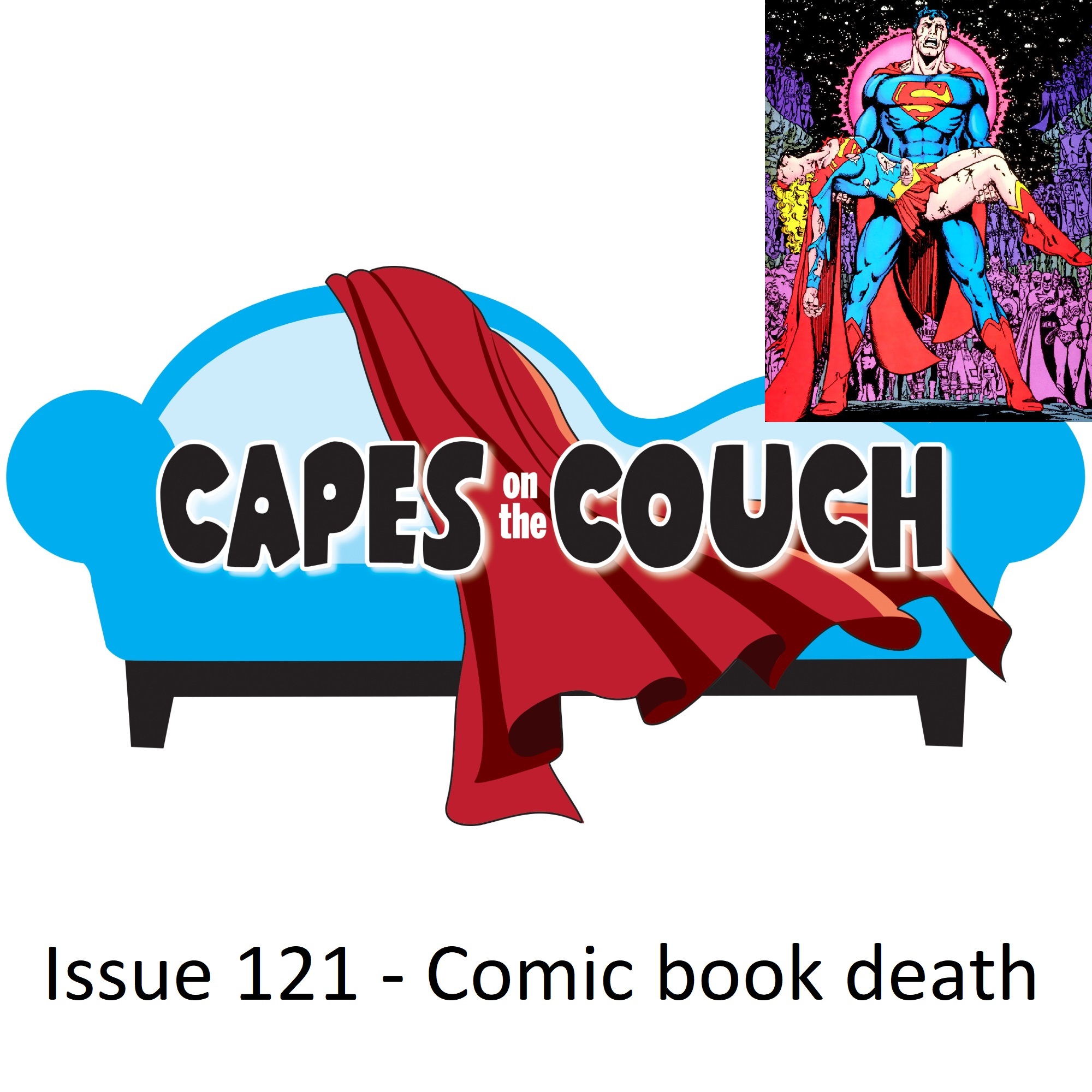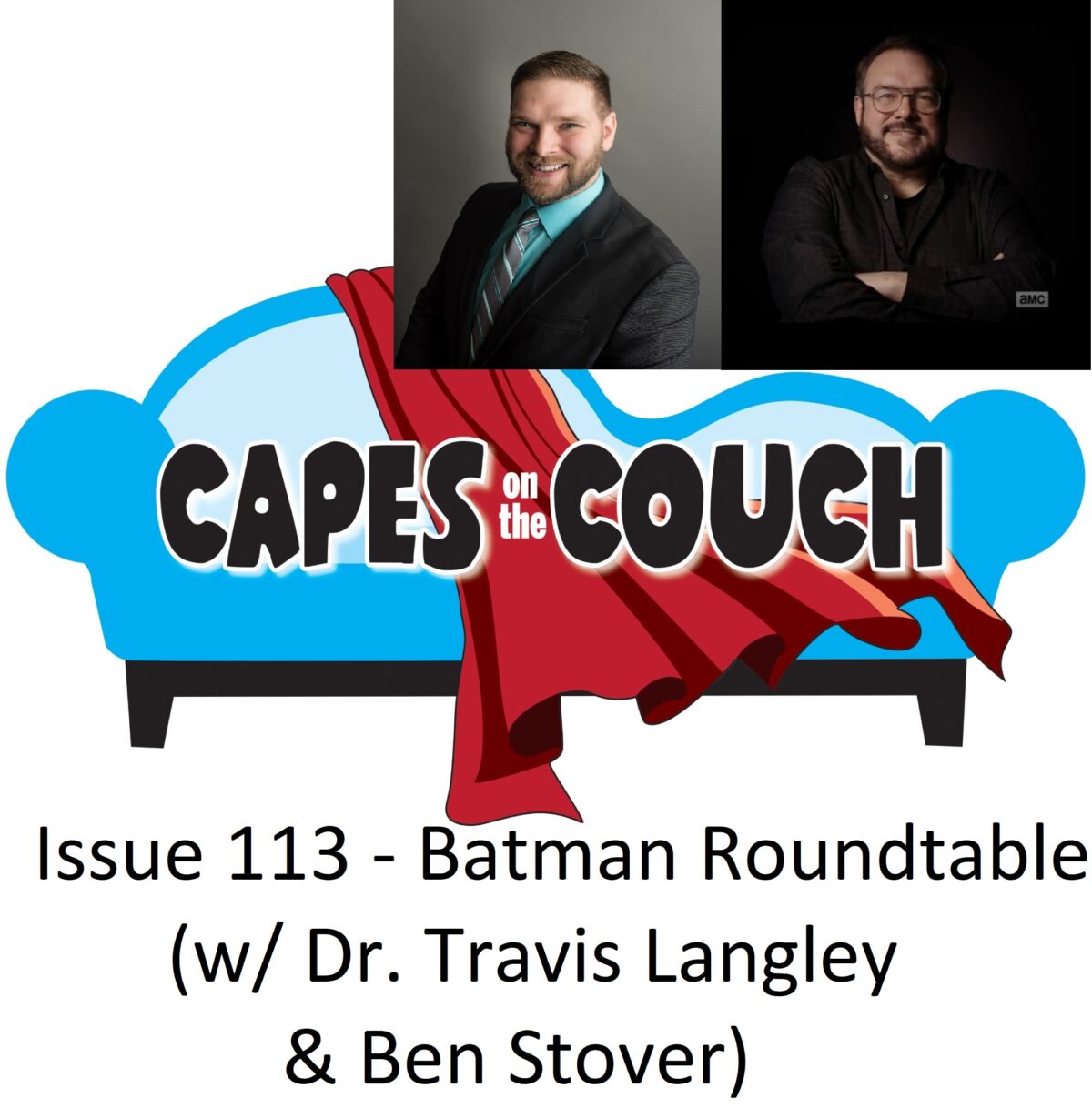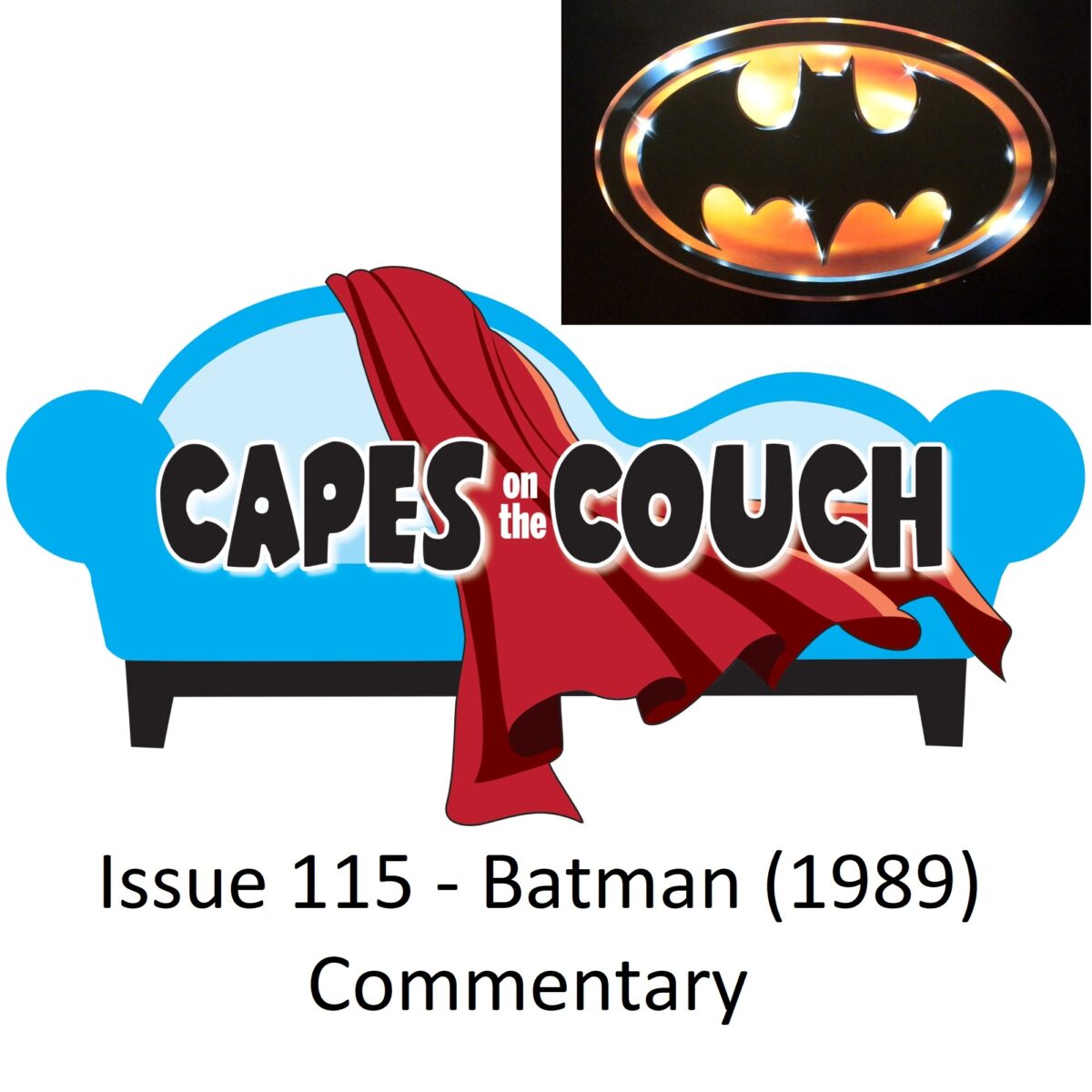- Intro
- Background (1:42)
- Comic book death – the Comet was the first superhero to die in the comics, in Pop Comics #17 (July 1941) – created by Jack Cole for MLJ Comics, the precursor to Archie Comics, John Dickering was a scientist who injected himself with a gas that allowed him to fly at the expense of uncontrollable rays that shot from his eyes. He was killed by henchman of a gangster he helped incarcerate.
- Matt’s point – the in-universe acknowledgment both Marvel & DC have introduced that death isn’t permanent, and how that’s starting to affect people
- Exhibit A: X-Factor. There’s a 30 some-odd issue arc where Siryn flat-out refuses to acknowledge that her father Banshee was killed in a plane explosion battling Vulcan. She totally laughs it off at first, because he’s an old MI-5 agent, and he’s had to fake his death a couple of times before. When the rest of the team offers its condolences, she asks who’s up for Chinese food. She’s going to get a notice in a couple of days that he’s just fine and he’s in hiding for black ops reasons. When Cyclops delivers Banshee’s video will and she has to face the possibility that it’s the real deal, she switches her coping mechanism to “OK, but he’s an X-Man, and X-Men are always dying and coming back to life, so he’s only dead for now. He’s not REALLY dead. He’ll be back.” This goes on and on for years. And sure enough, one Celestial Death Seed later, he’s alive and well on Krakoa.
- Exhibit B: Blackest Night. Just, all of it. An in-universe explanation of why the cycle of death and resurrection are just part of the job description of superheroes and supervillains, apparently.
- Exhibit C: Final Crisis. Superman gives a eulogy for Martian Manhunter in which he says he’ll be praying for him to be resurrected.
- Exhibit D: Astonishing X-Men, The Cure: When Shadowcat finds Colossus alive and well, she is lucid enough to quickly run through the gamut of all the possible explanations: “You have to know, if you’re a clone or a robot or an alternate universe thingie, I can deal, but if you’re some shapeshifter or pscionicist watching me twitch, I will kill you with an axe.” Finding someone you thought was dead is alive is so common that there’s a checklist to go through.
- Exhibit E: Spider-Man Unlimited. The obituary writer at the Daily Bugle tells Ben Urich that the worst part of his job is having to write an obituary for superheroes. They’re just going to come back to life, and then he’ll have to write a retraction.
- Exhibit F: The most recent one. The Incredible Hercules #129. Herc takes Amadeus Cho to Erebus, the region of the Greek underworld that is adjacent to the mortal realm. It’s presented to Amadeus as a casino where we see a litany of dead comic book characters who don’t feel like being “all the way dead” yet whiling away their time gambling for the right to be the next one to come back to life.
- Does this have a timely real world analogue in psychology? For denial of mortality, terror management theory, and risk assessment? Did we not all just spend the last year witnessing front and center the wildly divergent levels of comfort people have with the very concept of death? Some people outright thinking nothing can happen to them or anyone else they know? Some people taking the fatalistic attitude of, “well, SOMETHING’s gonna kill me”?
- I feel like the ability of human beings to take stock of proper risk assessment of things that are dangerous and/or potentially lethal, compounded with the things that could harm or kill them but are so remotely unlikely as to not even really exist? That’s a pretty big timely topic right now.
- Issues (10:35)
-
- 5 stages of grief
-
- Denial – Siryn (for Banshee)
- Anger – Nightcrawler (for Jean Grey) (16:38)
- Bargaining – Spider-Man (for Aunt May) (26:00)
- Depression – (32:00)
- Acceptance – (36:18)
- Dealing with deaths of heroes vs villains (45:15)
- Dealing with deaths of supers vs non-powered individuals (54:48)
- Break (63:40)
-
- Plugs for Take a Knee for Marvel & DC, The Real Brains, and Jeremy Whitley
- Treatment (65:00)
-
- Set up a plan with a grief counselor to check in on emotional state following the passing
- Ending
-
- Next episodes: Erica Schultz, Nebula, Victor Zsaz
- Plugs for social
References:
- Max Landis Death & Return of Superman (NSFW) – Anthony (3:30)
- Arthur Conan Doyle/”The Final Problem” – Doc (7:30)
- Misery – Anthony (8:45)
- Patreon TPB review with Rey – Anthony (10:40)
- Capes in Court episode – Doc (13:39)
- Jason Todd episode – Doc (22:04)
- The Black Swan – Doc (43:24)
- Antifragile – Doc (43:25)
- Hunter S. Thompson – Doc (62:17)
- Billy Joel “I Go to Extremes” – Anthony (72:10)
- Wheaton’s Law – Anthony (74:58)
- Hamilton – “Who Lives, Who Dies, Who Tells Your Story” – Doc (75:31)
Apple Podcasts: here
Google Play: here
Stitcher: here
TuneIn: here
iHeartRadio: here
Spotify: here




